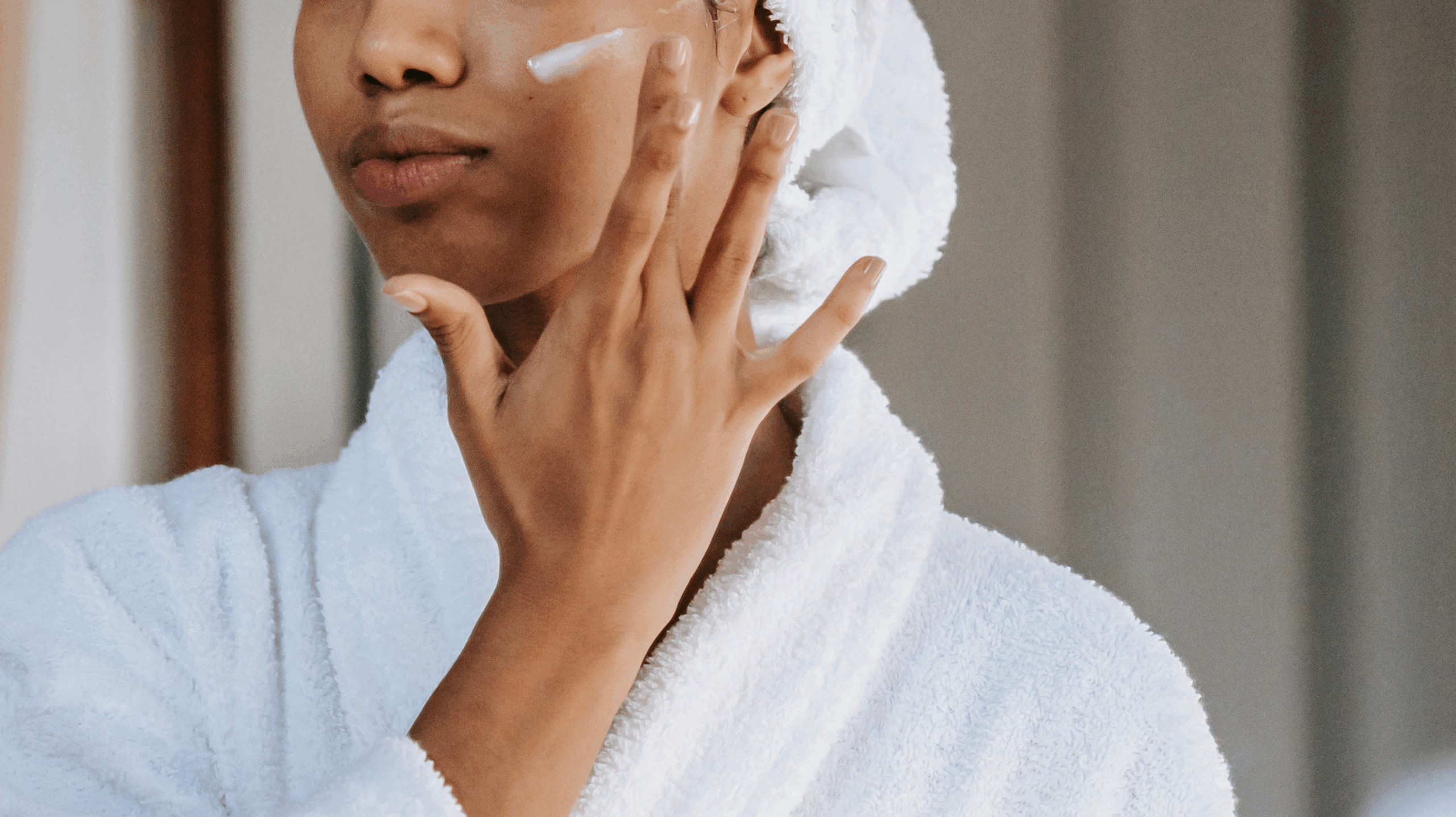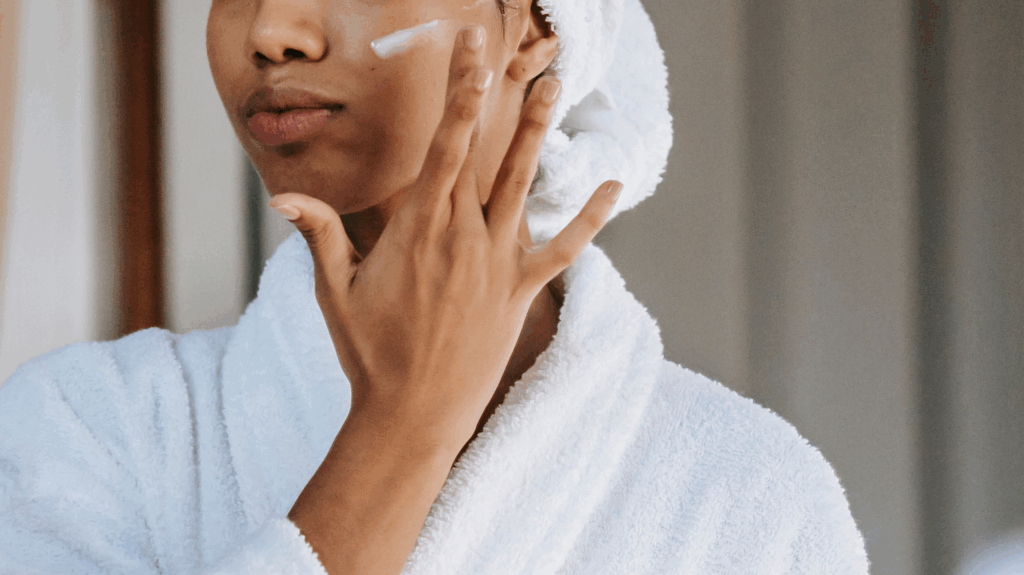
Perimenopause Itchy Skin – Why It Happens (& How to Stop The Itch!)
During the transitional period to menopause, you’ll experience a wide range of symptoms. Some women find that perimenopause itchy skin is one of the most frustrating ones.
While everyone’s experience of perimenopause differs, it’s not uncommon for skin to dry out and become itchy. So, let’s take a look at everything you need to know about perimenopause itchy skin – from why it’s happening to what you can do about it.
An introduction to perimenopause itchy skin
Itchy skin in perimenopause can be super uncomfortable. It can feel like something is underneath your skin, crawling, and it can spread all over the body. Itchy vulva, for example, is one of the most infuriating cases of perimenopause itchy skin.
So, let’s look at the basics. What causes the itch? What does it feel like? And what can you do about it?
Causes of perimenopause itchy skin
Perimenopause itchy skin is usually caused by your hormone changes.
During perimenopause – as you transition to menopause – your oestrogen levels decline. Oestrogen is responsible for a wide range of things, including collagen production.
Collagen is key for skin health – a complete foundational material – as well as a component to produce oils that hydrate your skin. If you’re lacking in collagen and oils, your skin can thin out and become itchy. Thus: the itchiness.
You may find that the itching gets worse the closer you get to menopause, as your oestrogen levels dip more drastically. Your skin will produce less sebum, which is responsible for keeping your skin hydrated.
If you’re experiencing perimenopause itchy skin, you may find that the itch can be just about anywhere. However, the most common places include:
- Your back
- Your chest
- Your neck
- Your face
- Your limbs
- Your elbows
- Your vagina
Other skin symptoms of perimenopause
Perimenopause itchy skin is not the only skin problem women experience during this transitional phase.
Other skin changes in perimenopause can also include:
- More pronounced wrinkles
- Acne and spots
- Rashes
- Rosacea and pigmentation
- Formication
- Paresthesia (also known as pins and needles)
What does perimenopause itchy skin feel like?
Obviously, perimenopause itchy skin consists of itching. But what exactly does it feel like?
It can feel like general itchiness, of course. However, it can also feel like a prickling and/or crawling sensation. For some women, even, it can feel like pins and needles.
Women sometimes describe the itch as the sensation of bugs crawling on or under the skin.
What to do about perimenopause itchy skin
The severity of itchy skin in perimenopause is unique to the person. The positive, though? There are things you can do about it to calm the itch.
1. Use a moisturiser especially after showering
If you’re experiencing perimenopause itchy skin, it’s time to invest in a high quality moisturiser. Trust me, there’s huge relief at stake here, so it’s worth spending some money on it.
That said, not all high quality moisturisers are expensive.
It’s just about finding a moisturiser that contains a low-PH emollient. This includes ingredients like glycerin or lactic acid. This will help hydrate the skin, retaining the water in your skin’s otter layer. As a result, itching and dehydration can be soothed.
Not to mention, a good moisturiser can help get that glow back to your skin.

2. Adjust your temperature when bathing or showering to lukewarm or cool
It can be tempting to have a scalding hot shower. However, if you’re having super hot showers or baths, you’re stripping your skin from the oils it needs to hydrate your skin.
Instead, opt for lukewarm water to retain those oils. When your skin is hydrated, the itchiness is much less severe.
You’ll want a cooler bathing or showering experience, too, to combat hot flashes and night sweats.
3. Use a fragrance-free soap
Fragrance-free soaps help with perimenopause itchy skin because it doesn’t use harsh chemicals and irritants that are found in perfumed soaps.
These chemicals can remove the natural oils found in your skin, making dryness worse and making your skin more sensitive as a whole.
When buying soap, look for a label that marks it as “fragrance-free” or “scent-free.” You’ll also want to use a soap that is made for sensitive skin.
4. Wear loose clothing made from breathable fabric
Loose-clothing made from breathable fabric, including cotton or silk, helps with perimenopause itchy skin. These fabrics help with reducing irritation and improving airflow. This is especially important if you experience itching as well as hot flashes, because if the body overheats, it can trigger sweating and friction. As such, itching can become more intense.
With that in mind, you want to opt for clothing that is made from natural-fibres, such as cotton and silk. You’ll want to avoid fabrics like wool.
5. Eat hydrating foods and drink plenty of water
Hydrating foods aren’t just for vaginal dryness. They can also help with perimenopause itchy skin.
Foods that hydrate the body helps sooth the itch because they support your skin’s natural moisture barrier. This barrier takes a bit of a beating when your oestrogen levels decline, so it’s important that we do whatever we can to build it up and protect it again.
Most hydrating foods to combat perimenopause itchy skin
The best foods to combat itchy skin in perimenopause and menopause include:
- Fruits and vegetables for their high water content and rehydration
- Strawberries (91% water)
- Oranges (85-90% water)
- Avocados (up to 78% water)
- Spinach (90-93% water)
- Broccoli (92% water)
- Cucumber (95-96% water)
- Water-melon (91-92% water)
- Celery (95% water)
- Tomatoes (95% water)
- Lettuce (95-96% water, depending on the lettuce. Iceberg lettuce is the most hydrating type of lettuce)
- Courgette (95% water)
- Bell peppers (92-94% water)
- Oily fish for their excellent sources of omega-3 fatty acids and skin moisture
- Salmon
- Sardines
- Mackerel
- Nuts and seeds for vitamin E and healthy fats
- Walnuts
- Almonds
- Hazelnuts
- Sunflower seeds
- And, of course, drinking plenty of water (and water-based drinks)
- Water
- Herbal teas

6. Exercise regularly
Believe it or not, making sure you’re moving around regularly will help with itchy skin.
Exercise boosts your blood circulation which, in turn, helps to deliver all the nutrients and oxygen more effectively. This also improves your endocrine system and lowers stress, which can often trigger skin issues.
Not to mention, exercise can also aid with collagen production and hydration. This, of course, helps to sooth itching in perimenopause, but it also assists with poor sleep.
7. Manage your stress levels as best as you can
It’s a lot easier said than done: manage your stress levels. However, it’s worth investing your time into learning how to manage stress. Not only for your mental health, but for your physical health too – especially during perimenopause when stress levels usually rocket.
In terms of how stress management will help with perimenopause itchy skin, it all revolves around cortisol. Cortisol are stress hormones. When you’re stressed, your body releases cortisol and this can trigger inflammation (which is why stress is such a leading factor when it comes to bloating) and make the itching worse.
Learning how to manage your stress means you’re reducing the amount of cortisol released into your body. In turn, this should help to sooth your itching.
Everyone tackles stress in their own way, so it’s important to experiment to discover what works for you. For some, meditation and yoga work a treat. For others, exercise and journalling are excellent stress management techniques.
Perimenopause itchy skin – when to see a doctor
While itchy skin is uncomfortable and aggravating, it’s not usually dangerous and does tend to go away when following the guidance above.
However, you should see a doctor if:
- The itching is affecting your daily life
- None of the techniques listed above have helped
- The itching keeps coming back and is accompanied by other symptoms, including a rash, swelling or signs of an infection
Perimenopause itchy skin – in a nutshell
Itchy skin in perimenopause is far from pleasant. It ranges in severity from woman to woman, though it is often caused by declining oestrogen levels as you transition to menopause.
However, there are home remedies to combat itchy skin. From using a high quality moisturiser and ditching the fragranced soaps to lowering the temperature of your showers and baths – not to mention eating hydrating foods, drinking plenty of water, exercising and managing your stress levels as best you can – you’ll feel a real difference.
Leave a Reply
- free ebook alert -
WHAT TO EXPECT WHEN YOU’RE
going through the menopause
Demystify your understanding of what’s happening to you. Arm yourself with solid, game-changing information to support you through this challenging phase of your life.
grab your copy now →
WHAT TO EXPECT WHEN YOU’RE
going through the menopause